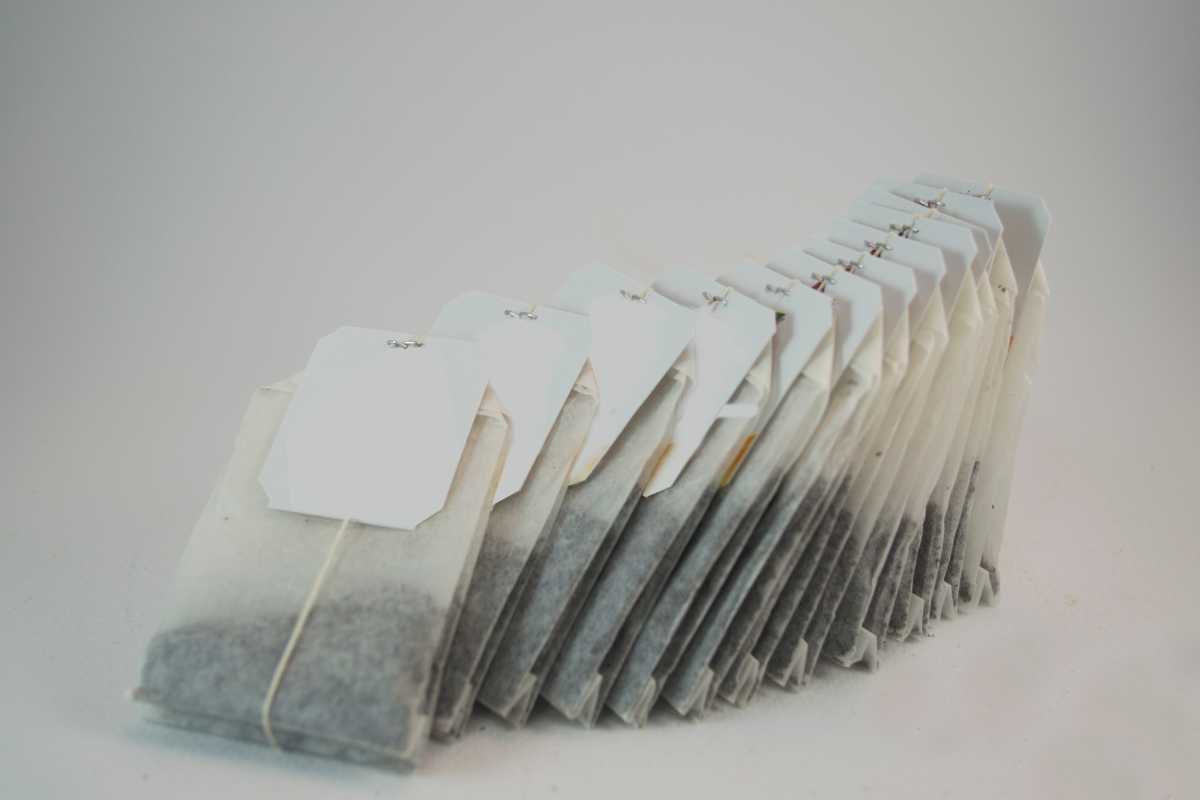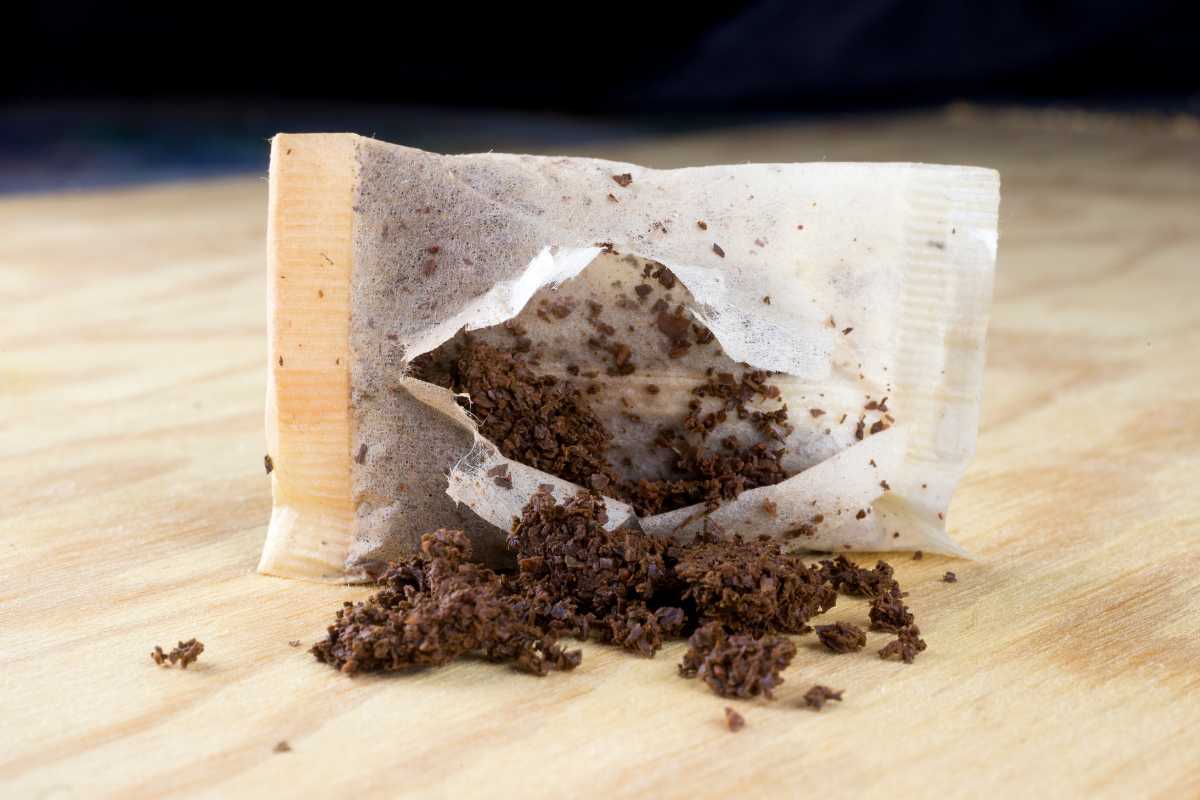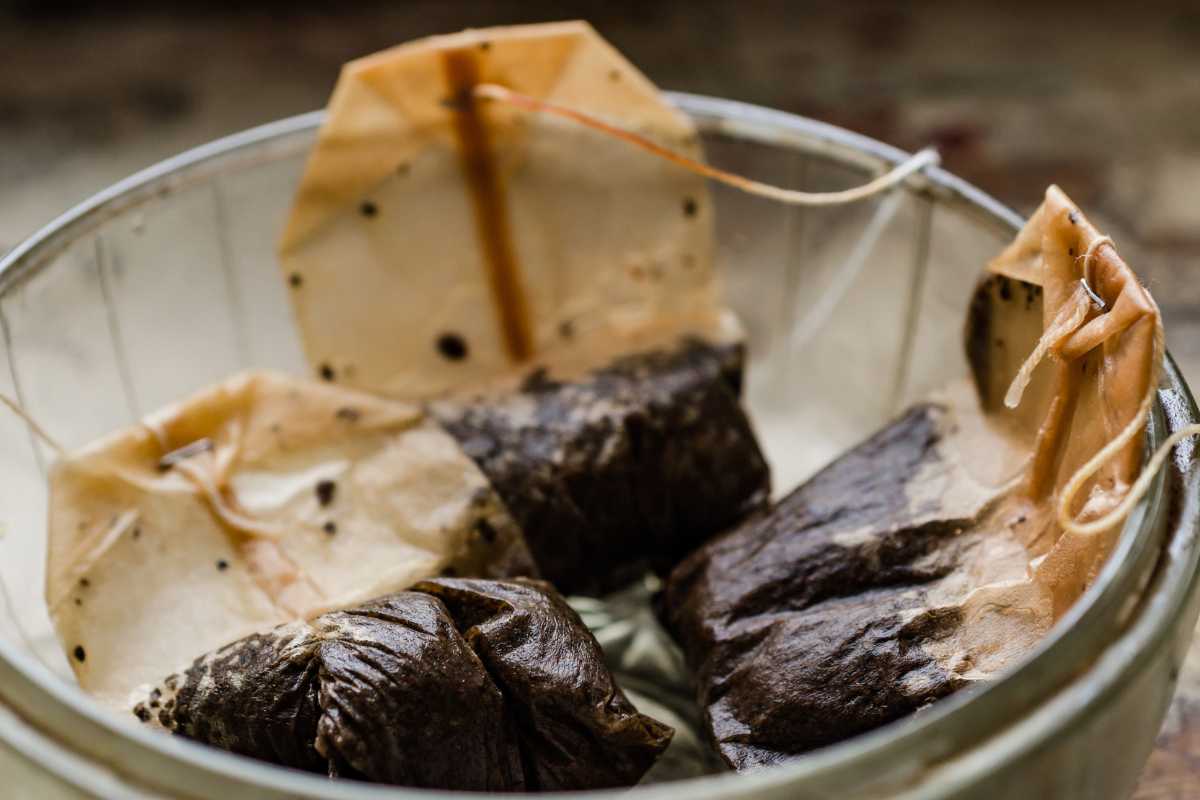When it comes to composting, I like looking to kitchen and household waste to add to my compost to improve the garden’s soil.
Tea leaves are a great addition to your compost pile. They fall under the ‘greens’ material category as they contain nitrogen. They are usually added to your composter after you’ve used them and are still wet.
Tea leaves also contain potassium, phosphorous and tannic acid, which is good for some plants, but not all plants will benefit from these. So it’s usually best to add tea leaves to your compost, rather than put them directly onto your plants.
Of course, tea doesn’t always come as loose leaf and many people prefer to use tea bags as they are convenient and remove the need to use a teapot. But can you compost tea bags?
In this article, I’m going to discuss whether tea bags can be added to your compost. Or whether you should discard the bag and only compost the used tea leaves.
Are Tea Bags Compostable?

Most tea bags are made of paper, which is definitely compostable. However, it is common for them to use tiny bits of plastic to seal the edges of the bag.
Since plastic isn’t biodegradable, it’s always best practice to check how the tea bags are made. Most manufacturers will have this information on their website.
The good news is that many brands are working towards being plastic free. Sometimes, even if the tea bags look like plastic, it can actually be made of cornstarch and be fully compostable. For example, Teapigs pyramid tea bags online.
Tea bags can also be made of silk or muslin, both of which are organic materials, so can be added to your compost.
As well as plastic in tea bags, a few bags may have staples made of metal. You will want to watch out for bags that have a label attached with a piece of string, as they sometimes have a metal staple that you want to remove first.
- Related article: Things Not to Compost
The string and label are usually fine to put in your composter. Some bags that also have staples are ones that are folded at the top, the staple being used to hold the fold in place.
Personally, I add the whole thing to my compost, then remove any bits that have not broken down when I dig over my heap.
But, if you want to ensure your compost is 100% organic, there are brands out there that use organic, plastic-free, unbleached tea bags that you will be able to add to your composter.
If you are unsure, then err on the side of caution and remove the leaves for composting and throw the bag in the trash.
Some tea brands that have compostable tea bags are:
- Teapigs
- Yogi Tea (although they do sometimes have a staple in the label)
- Lipton
- Pukka
- Twinings
- Yorkshire Tea
- Clipper (these tea bags are also unbleached)
There are also many single-cup tea strainers on the market that eliminate the need for bags altogether, so you can use loose-leaf tea and just compost the tea leaves.
Are Tea Bags Good for Plants?

Tea bags made of paper probably don’t add much to your compost, and it is the leaves inside that will add more nutrients to the soil.
Tea leaves are rich in nitrogen and will decompose quickly. Although, bags are usually carbon-rich and won’t break down as quickly as the leaves.
You can use fresh tea and leaves on certain plants that like acidic soil. Rosebushes and ferns will benefit from a few fresh tea leaves, and you can add them to indoor ferns too.
Any plants that like acidic soil will benefit from a few fresh tea leaves. You can even add a cup of cold tea to their regular water.
If you are doing this, especially with indoor plants, then keep an eye on the pH balance of your soil with pH strips or a pH soil tester. Ferns will be fine with a pH of four to seven.
Also, teabags won’t look particularly attractive in your houseplants, so it’s probably best to remove the leaves from the bag.
Other plants that like acidic soil include:
- Oxalis
- East Lily
- Poinsettia
- Tomatoes
- Spider plant
- Ficus / Rubber plant
- Hydrangeas
How to Use Tea Bags in Compost

It’s easy to use tea bags with your compost bin. Just follow these steps:
Step 1 – Check whether the teabag contains any plastic or metal. If it does, then remove the parts that contain the non-compostable materials, or remove the leaves from the bag altogether.
Step 2 – If you are composting the entire bag, you can cut the bag into pieces to speed up decomposition. I recommend doing this if you’re adding the bags to a worm factory, but it is not essential if you are adding it to a composter or compost heap.
Step 3 – If you have a kitchen countertop bin that you are collecting compost in, then add it to this until your bin is full, and you can empty it into your composter.
Step 4 – Add to compost pile, worm factory or compost heap.
Compost Tea Bags Final Thoughts
With more awareness of the issues with single-use plastics, many teabag manufacturers are researching other methods of sealing tea bags that do not use plastic.
This is good news for composters, since there is no need to remove the tea leaves from the bag before adding them to your compost.
As with any organic material, shredding it will help it break down quicker, but this is only really necessary if you are using a worm farm or a particularly small composter.
On a compost heap, the tea bag may help with the greens to browns ratio. The leaves count as greens and the bag will count as a brown.
I have always added the whole bag to my compost and never had any issues with it. If microplastics or organic standards are a worry, then research the brand’s sustainability standards. You can usually find all the information you need on their websites.
For more helpful composting guides, check these articles out:





